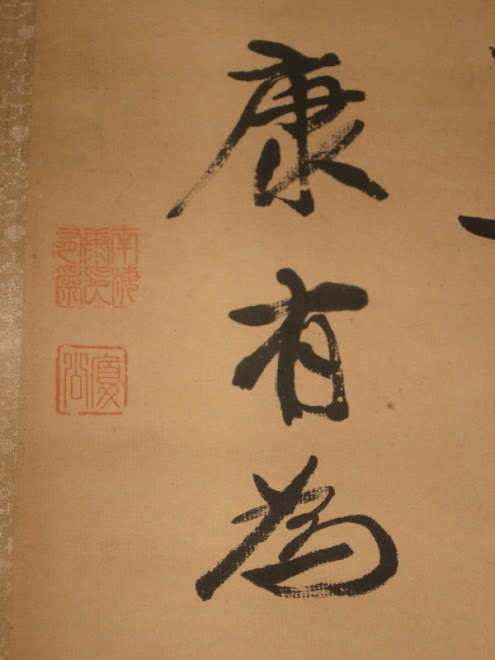Charter 08's Qing Dynasty Precursor by Jane Leung Larson with commentary by Chinese Australian scholar Feng Chongyi (who was himself detained on his last visit to China) first appeared in Asia Pacific Journal in July 2011. Kang Youwei's 1908 constitutional petition is a forerunner of Charter 08, comparable not only as a comprehensive program to reform China's autocracy but for how the Chinese government responded. The article opens:
Over the gulf of one century and two revolutions, two groups of Chinese petitioners drafted remarkably similar blueprints for political reform. Both groups sought civil rights and political responsibilities for Chinese citizens and a Western-influenced form of constitutional government to replace rule by autocracy. Today, China’s autocratic government is ruled by the Chinese Communist Party, and in the waning years of the Chinese empire, it was ruled by the Qing dynasty. The striking differences between these petition movements are as instructive as their similarities, reflecting not only the qualities of the movements themselves but the radically different political environments—inside and outside China—from which they emerged.
In 2008, Charter 08 declared that “freedom, equality, and human rights are universal values of humankind, and democracy and constitutional government are the fundamental framework for protecting these values.”[1] Charter 08’s drafters, of whom the 2010 Nobel Peace Prize winner Liu Xiaobo is the most prominent, describe themselves as inheriting China’s historical legacy of political reform. They called for a citizens’ movement “so that we can bring to reality the goals and ideals our people have incessantly been seeking for more than a hundred years.” They credit the 1898 Hundred Days of Reform led by the Guangxu Emperor to transform China into a constitutional monarchy with being China’s “first attempt at modern political change,” and the first sentence of their petition reads, “A hundred years have passed since the writing of China‘s first constitution.”
Indeed, this decade, 1898 to 1908, foreshadowed what has been more than a century-long sporadic, often marginal, and as yet unfulfilled movement to eliminate China’s autocratic system and give Chinese people the right to take part in national affairs. As Charter 08 acerbically notes, with “the revolution of 1911, which inaugurated Asia’s first republic, the authoritarian imperial system that had lasted for centuries was finally supposed to have been laid to rest.” All too soon, “the new republic became a fleeting dream.” And, finally, “the ’new China’ that emerged in 1949 proclaimed that ‘the people are sovereign’ but in fact set up a system in which ‘the Party is all-powerful’. . . . Unfortunately, we stand today as the only country among the major nations that remains mired in authoritarian politics.”
[1]
“China ’s
Charter 08,” translated from the Chinese by Perry Link, New York Review of Books, January 15, 2009 . http://www.nybooks.com/articles/archives/2009/jan/15/chinas-charter-08/

No comments:
Post a Comment